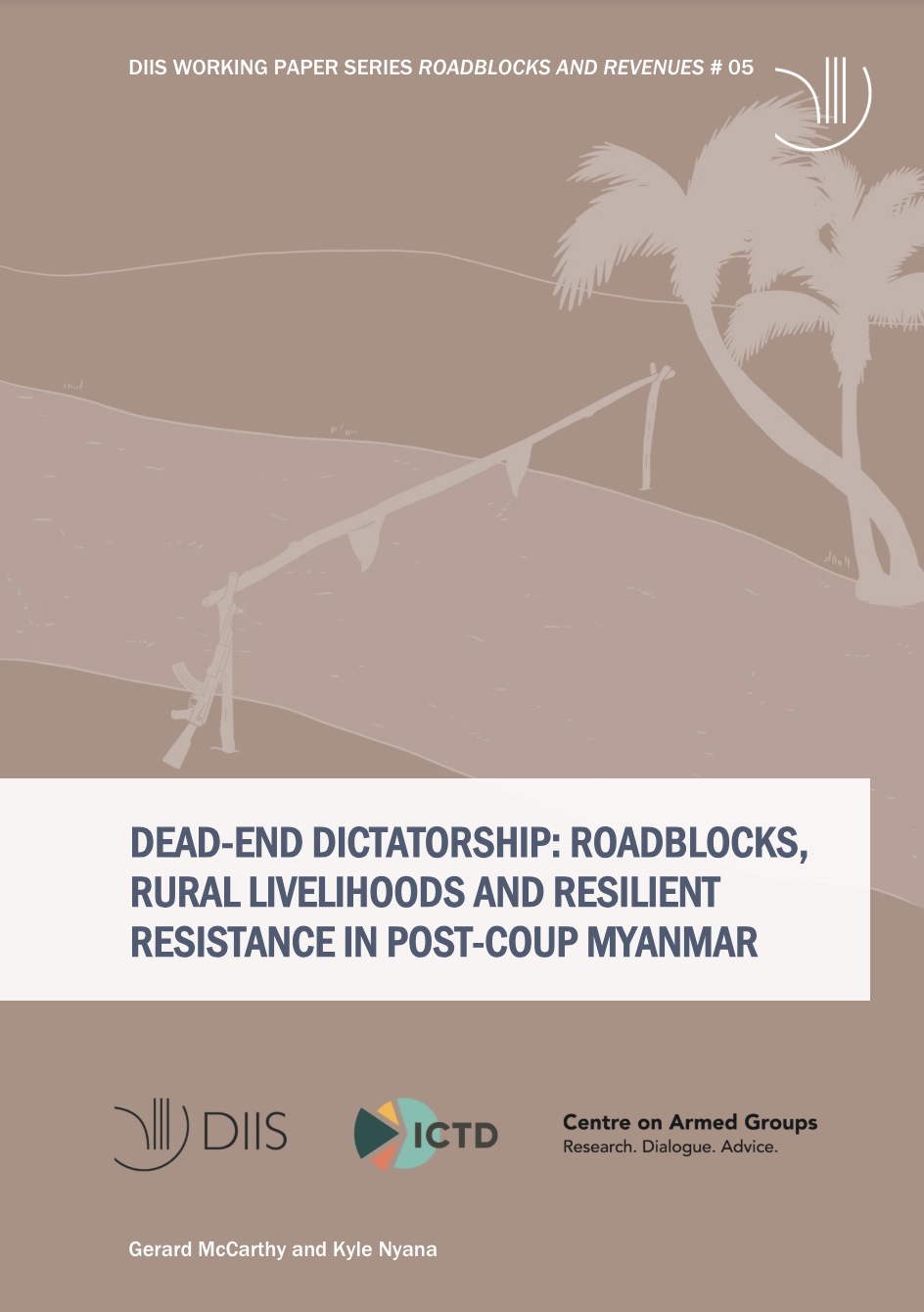Dead-end dictatorship: roadblocks, rural livelihoods and resilient resistance in post-coup Myanmar
Gerard McCarthy & Kyle Nyana
Roadblocks & Revenues Working Paper Series #05
Following Myanmar’s February 2021 coup, checkpoints have exploded, crucial to both the military junta and resistance forces. Based on fieldwork in Sagaing Region and Chin State in 2022-2023, this paper theorises the relational dynamics at and between their respective checkpoints. Checkpoints are variously used by the junta to suppress resistance and generate revenue, and by resistance forces to undermine the military’s supply lines and tax high-value goods. These dynamics have forced livelihood adaptation as rural households increase subsistence agriculture, deepen local reciprocity and barter practices and shift social roles – especially for women. Driven both by necessity and anti-dictatorship grievances, we find that practices of mutuality, resource pooling and adaptation, encouraged by roadblocks and the constraints they impose on movement, are deepening the structural resolve of communities to support the resistance movement in the struggle against dictatorship.
This paper is the fifth in a new working paper series on Roadblocks and Revenues, a collaboration between the Danish Institute for International Studies, the International Centre for Tax and Development and the Centre on Armed Groups.

